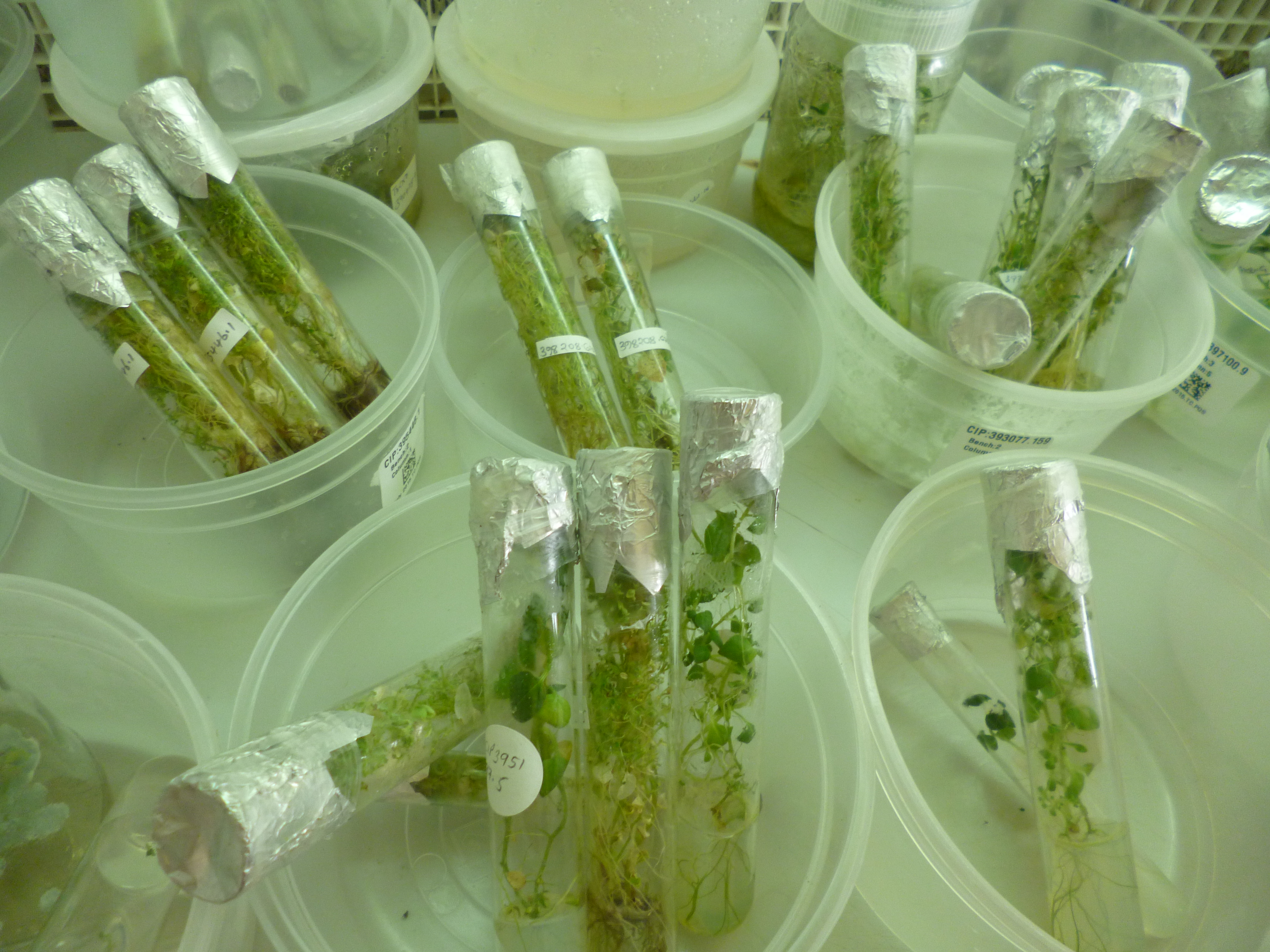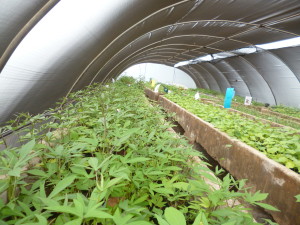|
Getting your Trinity Audio player ready...
|
By : Sweetpotato for Profit and Health Initiative Regional Technical Support Platform for East, West, Central and Southern Africa and Mary Mwendwa.
The International Potato Center (CIP) is steering a 10-year, multi-donor, multi-stakeholder project that seeks to increase production of sweetpotato by improving farmers’ access to disease-free seed.Seed is the starting block for improved food security, nutrition well-being and livelihoods.
In Sub-Saharan Africa, where sweetpotato is one of the most important food and cash crops, functioning seed systems are essential in improving production and productivity.
Sweetpotato is the third most important food crop in East Africa in terms of production and the fourth most important in Southern Africa. It can produce better yields in poor conditions with fewer inputs and less labor than other staples, making it particularly suitable for households threatened by migration, civil disorder, or diseases such as AIDS. Yet the potential of sweetpotato to address these challenges is largely untapped due to farmers’ lack of adequate, disease-free or clean planting material at the right time.
Sweetpotato is reproduced through vine cuttings. So, unlike the seed of maize or rice crops – sweetpotato vine cuttings, or seed – are perishable, bulky and expensive to transport over long distances. Across the continent, sweetpotato farmers complain about the insufficient quantities of quality vines available at the start of the rains. Delayed planting leads to lower root yields. This, in turn reduces food security and potential income from the sale of roots.
Building sustainable sweetpotato seed systems
The International Potato Center (CIP) is steering a 10-year, multi-donor, multi-stakeholder initiative that seeks to reduce child malnutrition and improve smallholder incomes through the effective production and expanded use of sweetpotato. The Sweetpotato for Profit and Health Initiative is (SPHI) is expected to improve the lives of 10 million households by 2020 in 17 target countries. Launched in 2009, the project had already reached 1,079,029 households by the end of December 2014.
One of the key intervention areas is increasing availability of healthy vines for planting and exploring novel systems for disseminating planting material to more cost-effectively benefit poor producers.
Working with over 30 governmental and non-governmental institutions, CIP is helping to strengthen seed systems in specific countries through improved breeding, capacity building and enabling local entrepreneurs to participate in vine multiplication and distribution. These efforts are already bearing fruit.
In Uganda, the Triple S system, developed by Natural Resources Institute, UK, and CIP enables farmers to store sweetpotato in sand and use a simple, cost-effective on-farm method of conserving and multiplying clean sweetpotato planting material for the on-set of the rains. In other countries, such as Rwanda, Malawi, Nigeria and Tanzania, a low cost net tunnel technology has been developed and promoted among vine multipliers who sell sweetpotato seed to farmers. The net tunnels protect initial “clean” seed stock from the whiteflies and aphids which are responsible for spreading sweetpotato virus diseases. This technology is already improving the yields and enabling local farmers to make extra income.
Communities of Practice drive innovation in sweetpotato seed systems
In 2014, more than 40 sweetpotato scientists and development practitioners established a community of practice to learn and exchange experiences on how to overcome these challenges. The members learn through an internet based “virtual community”. Back in their home countries the members are working together with farmers to address two key challenges: first, how to ensure the survival of planting material in areas with extended dry periods; and second, how to avoid the build-up of pests and diseases as sweetpotato vines are re-cycled from one season to the next and leads to a reduction in root yields.
The second major challenge is in areas where sweetpotato can be produced all year round and where there is high disease pressure – in particular sweetpotato virus diseases. This can lead to up to 98% yield loss in some varieties. Participants at the meeting will visit field activities in Rulindo and Kamonyi Districts to witness the successes of this technology and discuss further adaptations required, comparing their findings with other countries.
Facts to Note
The Sweetpotato for Profit and Health Initiative is (SPHI) is a 10 year, multi donor initiative that seeks to reduce child malnutrition and improve smallholder incomes through the effective production and expanded use of sweetpotato. It aims to build consumer awareness or sweetpotato’s nutritional benefits, diversify its use, and increase market opportunities, especially in expanding urban markets of Sub-Saharan Africa. The SPHI is expected to improve the lives of 10 million households by 2020 in 17 target countries.
The International Potato Center (known by its Spanish acronym CIP) is a research-for-development organization with a focus on potato, sweetpotato and Andean roots and tubers. CIP is dedicated to delivering sustainable science-based solutions to the pressing world issues of hunger, poverty, gender equity, climate change, and the preservation of our Earth’s fragile biodiversity and natural resources.
CIP is a member of the CGIAR Consortium, an international organization made up of 15 centers engaged in research for a food secure future. This global agriculture research partnership is dedicated to reducing rural poverty, increasing food security, improving human health and nutrition, and ensuring more sustainable management of natural resources, in close collaboration with hundreds of partner organizations, including national and regional research institutes, civil society organizations, academia and the private sector.















